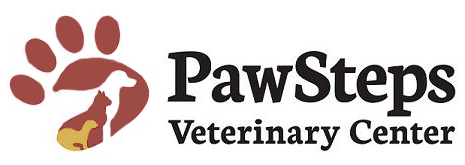Library
-
Allopurinol is an oral medication typically used to prevent uric acid and calcium oxalate stones in dogs. It is also used off-label to treat leishmaniasis and gout in dogs and other species.
-
Amoxicillin is given by mouth and is used on and off label to treat certain bacterial infections in a variety of species. Common side effects include lack of appetite, vomiting, and diarrhea. Do not use in pets that are allergic to it or other penicillins, cephalosporins, or other beta-lactam antibiotics; do not use in rabbits, guinea pigs, chinchillas, hamsters, or other small mammals.
-
Ampicillin is an antibacterial medication given by injection or by mouth and is used on or off label to treat certain infections. Side effects include allergic reactions or gastrointestinal upset, and neurological signs when given in high doses. Ampicillin use is contraindicated in pets allergic to penicillins and in rabbits, guinea pigs, chinchillas, or hamsters. If a negative reaction occurs, please call your veterinary office.
-
Atropine ophthalmic (brand name Isopto Atropine) is an eye medication used to dilate (enlarge) the pupil. It is used off label (extra label) only, in all veterinary species of animals. Atropine ophthalmic comes in a 1% drop, solution, or ointment form, which is placed directly into the eye.
-
Axolotls are purely aquatic amphibians. They retain external gills and a paddle-like tail for their entire life. This handout outlines habitat and food requirements, as well as potential health concerns for your pet axolotl.
-
Brumation is a state of sluggishness or inactivity that wild bearded dragons undergo in extreme environmental conditions in their native Australia. Pet bearded dragons are often assumed to be undergoing brumation inside a normal household setting, but in many cases, the pet is sick. A veterinary examination is highly recommended for any reptile showing sings of lethargy or inactivity.
-
Chameleons are fascinating pets with bright colors and eyes that can rotate 360 degrees. Chameleons range in size from 0.9 inches to 27 inches long. They require special considerations in relation to their cage set-up and diet. Most chameleons do well on a cricket, mealworm, or waxworm-based diet. All chameleons require UVB lighting, a heated cage environment, and humidity of 60%-90%.
-
Carprofen is a nonsteroidal anti-inflammatory drug (NSAID) used on and off label. It is given by mouth in the form of a tablet to treat pain and inflammation. The most common side effects include vomiting, diarrhea, and decreased appetite. Do not use this medication in pets with bleeding disorders, in pets that are allergic to it or other NSAIDs in the same class, or in pets concurrently using corticosteroids or other NSAIDs. If a negative reaction occurs, call your veterinary office.
-
Chameleons may be affected by a variety of medical conditions. A swollen abdomen needs attention by a veterinarian in case of possible egg retention. Swollen joints are most likely an indication of uric acid deposits, a condition called articular gout. Chameleons with poor perching ability and/or abnormal leg angles likely have metabolic bone disease. Swellings of the tissue around the eyes is common and needs proper treatment, possibly surgery, to correct.
-
Chloramphenicol (brand names Chloromycetin®, Viceton®) is a broad-spectrum antibiotic used to treat many different bacterial infections in many species. Chloramphenicol comes as tablets, capsules, liquid suspension, and in an injectable form (chloramphenicol sodium succinate). Injectable forms will be administered by your veterinarian.

